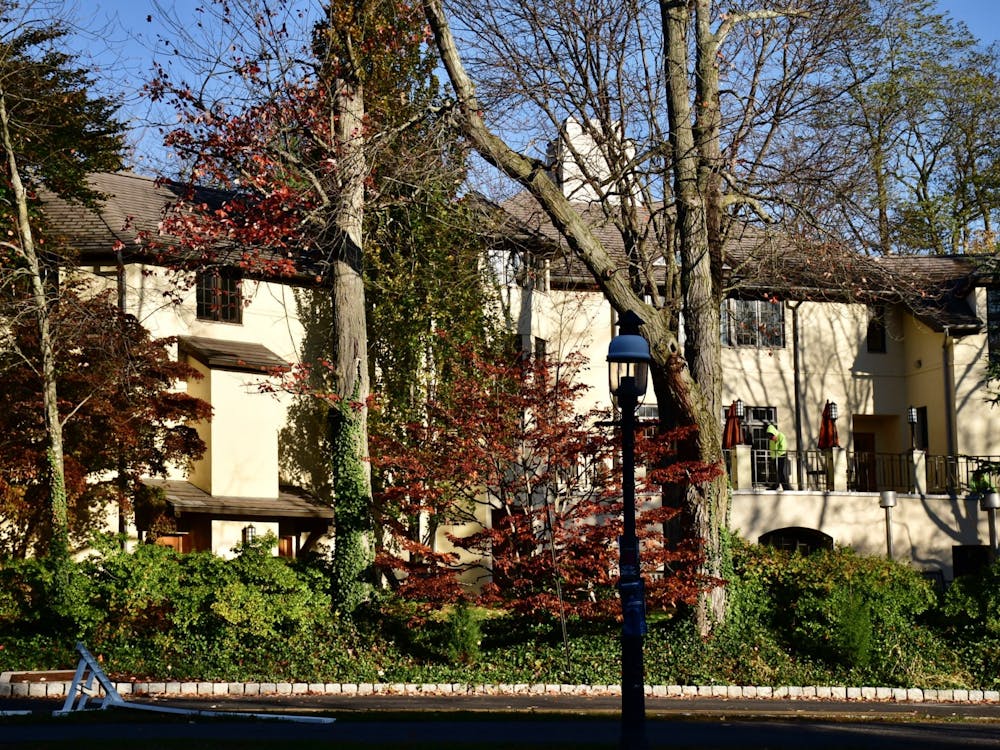“My professor doesn’t respect my athletic commitments at all,” a student-athlete ranted to me during a study session sometime last week, referring to a specific incident in which her professor had responded with frustration when she informed him of an athletic conflict three days before a quiz. I remained sympathetic, but when another friend later revisited the conversation with me, she dismissed it entirely: “I mean, it’s not really fair for athletes to get special treatment anyways.”
The perception by non-athletes that athletes receive special treatment is a common one: the Princeton University Student-Athlete Handbook states: “Missed classes due to travel for University sanctioned competition are excused absences.” Meanwhile, under University guidelines for Academic Standing and Regulations that supposedly apply to non-athletes and athletes alike, “Students are expected to attend all scheduled course meetings and exercises and to be present promptly at the start of instruction, unless prevented from doing so by illness or another compelling cause.”
The concept of a University-sanctioned absence is often unique to the realm of athletics. I doubt the University would ever sanction student activism such as 7x9, the 23-hour performance art protest held by Students for Prison Education and Reform (although arguably because that’s the nature of protest). A friend of mine, a youth delegate at this year’s United Nations Climate Change Conference in Paris (where an international agreement on lowering carbon emissions will likely be reached), was denied University-sanctioned approval to attend the conference and was thus required to request individual permission from each of her professors. Although this is not necessarily true for all cases of absence due to non-athletic commitments, non-athletes may take these examples as opportunities to decry University protection of student-athletes, feeling that the student-athlete is an insufficient representation of the interests or aspirations of the student body. They may question how the University can justify the protection of athletes when it does not always recognize in the same way the important commitments of non-athletes.
My case is not to argue that Princeton athletics are unimportant or that athletes should be left to confront demanding practice and competition schedules without supportive academic policy — Princeton University, as a member of the Ivy League, has its roots in the athletic tradition (whether or not some believe that to be an archaism). Instead, I seek to question why there might exist such a tension between non-athletes and their varsity counterparts. The problem of having a perceivably slanted academic policy arises when the justification for that policy is insufficient. A gross dissonance exists between academic support for athletes and the lack of actual promotion of athletic events, a lack of the spirit of the game on this campus. Non-athletes need to be convinced that the athletic tradition still matters and that thus, academic policy supporting it is a necessary institution, and it is not the duty of non-athletes to exercise that persuasion on themselves.
Some may argue that this is the nature of Princeton — that non-athletes, consumed by their own academic priorities and personal extracurricular commitments, are predisposed to remain unconcerned with respect to traditions of football games, basketball tournaments, tennis matches and the like, and that advertising athletic events to non-athletes will fall on deaf ears. Although this description may apply to some, it is a wrongful generalization. Students here are motivated to be passionate individuals with gritty fighting spirit (at least, that’s what being surrounded by perspicacious minds and drowned in work should ideally do to us), so why can’t our passions be directed towards fostering support for the national champions and record-breakers among us whose successes are capable of representing an integral part of the greatness of our student body?
The real apathy towards athletics here is hugely a factor of tension between an academic policy that supports athletes and an administrative attitude that almost dismisses them as a minority presence and as an archaism that falsely preserves some historical tradition. Between 2014 and 2015, the University only expended 2 percent of its total operating budget on athletics. While non-athletes breathe a sigh of relief, the nostalgia for the athletic tradition sputters out its last dying breath. Non-athletes thus may be forced into a state of confusion as to why their fellow student-athletes receive benefits, such as excused absences for University-sanctioned competitions, that devotees to other extracurricular activities do not, especially if the University limits its financial and celebratory support of athletics.
An argument for greater financial support for athletics might be a source of contention among many, but that does not mean the athletic tradition is destined for a fate of extinction. If the University cannot take a step towards increasing support for athletics, then it is up to athletes to remedy the tension between academic policy supporting athletes and the dearth of community support for athletics. Just as dance companies and a capella groups on campus gain greater popularity and solidarity through self-promotion, teams could garner support for the athletic tradition by sending out more information about upcoming athletic events to the general student body. Whether or not such efforts actually prove fruitful in attracting non-athletic crowds, I think the general sentiment is the same: I’d at least like to know about the game before I decide whether or not I care enough to go see it.
Reva Abrol is a sophomore from Syosset, N.Y. She can be reached at rabrol@princeton.edu.








